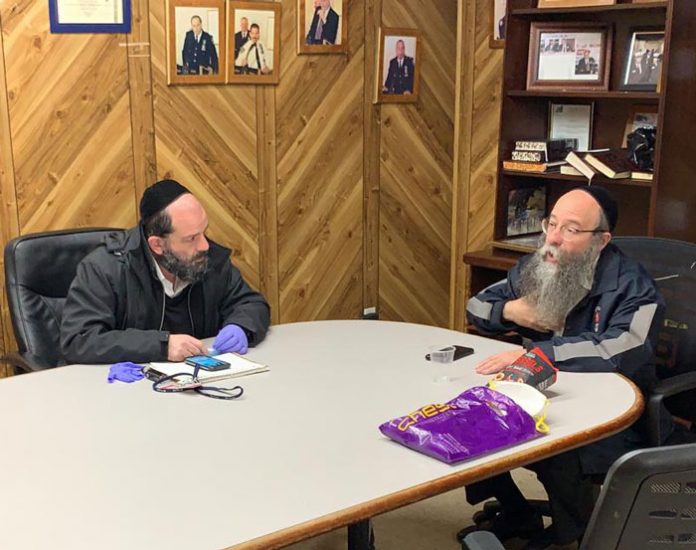With the medical system in New York City being tested by the outbreak of COVID-19, first responders are facing some of their toughest days yet.
I reached out to Hatzolah of Boro Park coordinator Hertzka Halpert and paramedic Chaskie Rosenberg to get a firsthand account of what is happening on the frontlines of the Boro Park community’s fight against coronavirus. I was told that because of the incredibly high volume of emergency calls, he literally had no time to talk to me. After making my case that this interview was of critical importance, in order to get the message out to the community, I was told my questions would be answered in between calls, if there was time. I sent questions and received answers, sometimes hours apart and in between calls, a testament to the fact that Hatzolah is working day and night during this difficult time.
When should Hatzalah be called?
When one has difficulty breathing. Do not call Hatzalah if you need advice or information or anything else related to coronavirus. For that, please call your doctor..
Is Brooklyn harder hit than other communities?
It does seem that people in our communities have become ill earlier than in others, but hopefully that means it will be over more earlier too.
Why are so many people passing away? Are people being taken to the hospital too late?
That’s a very tough question, but the simple answer is that unfortunately this disease will kill a certain percentage of people. We are trying to keep people away from the hospitals as much as possible, and we’re doing whatever we can do for them at home, whether with fluids or oxygen concentrators, but obviously we cannot control who is going to live and who is unfortunately not going to make it.
What is the biggest challenge for Hatzalah right now?
Covering the extraordinary amount of calls, and making the tough decisions of who can be treated at home versus who needs to be taken into the hospital.
You mentioned an “extraordinary amount of calls.” What kind of uptick has there actually been?
We have seen a 250 percent increase in calls.
Is it true that the New York City hospitals are overrun with patients and don’t have enough staff and supplies?
There aren’t enough respirators and ventilators in the hospitals, and they have been scrambling to get more. The equipment is on order, or the hospitals are waiting for the government to provide it. Since we never take no for an answer, we did not wait for the government. We called anyone we knew who refurbishes these life-saving machines in order to sell in other countries. We bought 50 of these machines at a cost of over $100,000 and brought them to local hospitals. We were also able to procure certain experimental drugs, which the hospitals did not have access to through their usual channels, but with our connections we were able to get them to the local hospitals. Lastly, we have been bringing complimentary sandwiches to the hard working nurses in the emergency rooms to show them our appreciation during this difficult time.
How can people assist Hatzalah during this time?
The first thing people can do is to listen to what the doctors and the rabbanim are saying about social distancing. Secondly, whoever has access to medical supplies and or personal protective equipment (PPE), ventilators, oxygen concentrators, gloves, masks, goggles or gowns should please contact their local Hatzalah and donate.





















